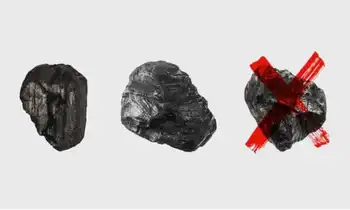Ontario May Feel Cash Squeeze
TORONTO -- - The decision to scrap plans to sell a minority stake in the Hydro One power transmission grid means the province will have a tough time balancing its books and will further tarnish the governmental image among investors, analysts said.
The sale of a 49 per cent interest in Hydro One, which was to be completed in the first quarter of this year, was expected to add about CAN$2 billion to the coffers of Canada's most populous province.
Ontario Superior Court last spring quashed the province's plans to sell all of Hydro One in what would have been Canada's biggest initial public offering. After the court ruling, the Conservative government said it would sell a minority stake in the company, which transmits 90 per cent of the province's electricity.
"A two billion dollar hole, or whatever the number is, will result in some tough challenges...I don't think the economy is doing two billion dollars better than the last time," said Derek Burleton, a senior economist at Toronto-Dominion Bank.
Electric deregulation, the brainchild of Ontario Premier Ernie Eves's predecessor, Mike Harris, was expected to bring much needed investment in Ontario power plants and reduce the C$38 billion debt accumulated by the old Ontario Hydro.
But Ontario's California-style deregulation led to prices soaring more than 25 percent after the market opened on May 1, causing Eves to freeze electricity rates and offer rebates to angry consumers.
Freezing rates until May 2006 fizzled prospects of any private investment in power plants in Ontario, which suffers from power shortages during peak periods, and also dashed hopes about investor interest in a minority stake in Hydro One.
Critics said dwindling investor interest and an upcoming provincial election have led Eves to keep Hydro One in public hands as he tries to garner support.
Ontario New Democratic Party Leader Howard Hampton said Eves's move was an "election dodge", adding that the Conservatives may change their mind on Hydro One yet again if they win the next election, expected as early as this spring.
BILLION DOLLAR FUND
The province has set aside $1 billion in a contingency fund and could get some additional federal money for health-care expenses, which would free up some cash to cover the $2 billion shortfall.
But analysts say the hole -- about three per cent of fiscal 2001's $64.3 billion in provincial revenue -- is big enough to create problems.
"In December (the government) indicated that it was going to sell assets of about $2 billion and that would be required to balance the books," said Gerry Phillips, a finance critic for Ontario's Liberal Party.
"Theoretically, they are going to have to find that money elsewhere and I think they will proceed to sell other assets... It takes away most of their fiscal flexibility and sends a signal to the financial community of a government that is a bit rudderless."
Eves said on Monday his government would still balance its books.
Ontario Finance Minister Janet Ecker said in early December that the province, Canada's main financial and industrial engine, was showing some of the strongest economic growth in the developed world. She upped the province's economic growth forecast to 3.5 per cent from 3.2 per cent for fiscal 2002, ending in March.
Ecker added that while Ontario's growth in fiscal 2003 will be strong, the pace of growth will slow a little from fiscal 2002.
Some analysts pointed to the long-term adverse effects from the government's electricity privatization plan.
"The present situation with electricity is not sustainable," said Jan Carr, an electricity consultant with Baker, Dunn & Rossi in Toronto.
"We're using electricity today which we have to pay for tomorrow. The whole reason we needed to (privatize) was that we had accumulated a C$38 billion debt and restructuring was intended to get us out of that hole, not dig the hole bigger," Carr said.
Bruce Sharp, senior consultant at Aegent Energy Advisors, said rebates and price freezes will cost the government nearly C$1.46 billion by April 2003, or about C$300 million more than had been estimated for the first year of deregulation to help customers pay their bills if prices skyrocketed.
Related News

Modular nuclear reactors a 'long shot' worth studying, says Yukon gov't
WHITEHORSE - The Yukon government is looking for ways to reduce the territory's emissions, and wondering if nuclear power is one way to go.
The territory is undertaking a feasibility study, to determine whether there's a future for SMRs — small modular reactors — as a low-emissions alternative to things such as diesel power.
The idea, said John Streicker, Yukon's minister of energy, mines and resources, is to bring the SMRs into the Yukon to generate electricity.
"Even the micro ones, you could consider in our remote communities or wherever you've got a point load of energy demand," Streicker said. "Especially electricity demand."
SMRs…




